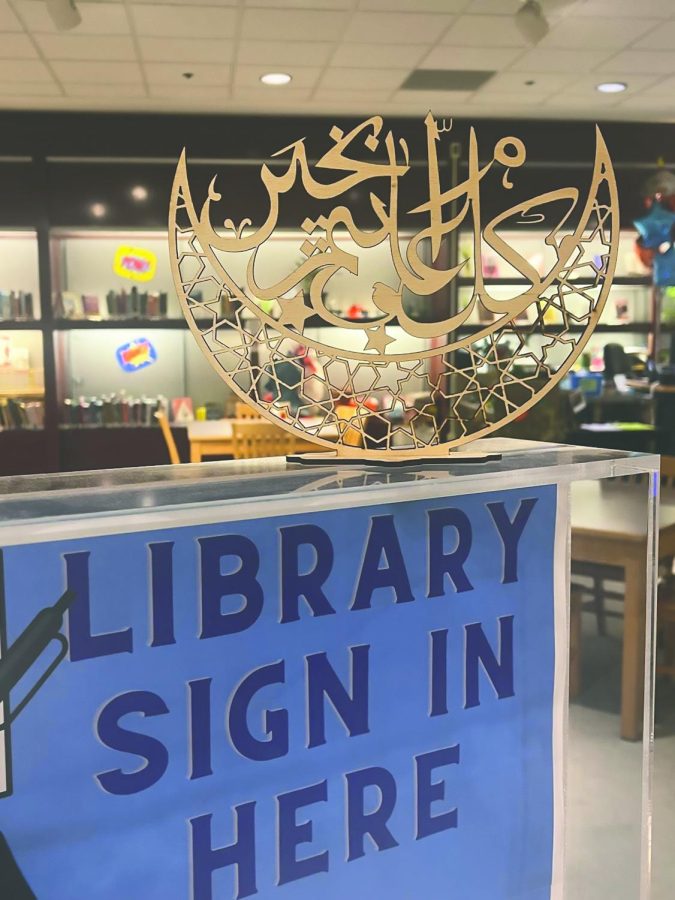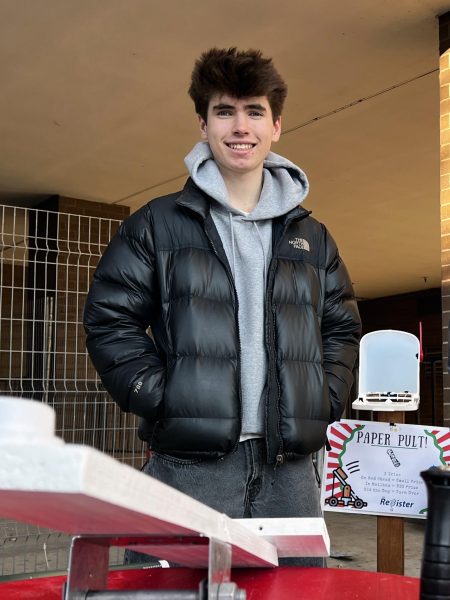Room for Ramadan
Prayer spaces and a no food zone designated for the holy month
June 13, 2023
Several BHS students observe a strict fast – no eating or drinking – from sunrise to sunset during the month of Ramadan (March 22-April 20). Faculty and staff at BHS are trying new initiatives to try to ease the burden of fasting and to make all students feel comfortable and respected.
“[Ramadan] fasting is very hard during the first 10 days because you’re not used to fasting a whole day,” Multilingual Liaison Noor Bulle said. “You start having drowsiness, loss of energy, [and] headaches.”
Bulle and Zaharo Aden are Somali language liaisons for the Burlington School District. Together with librarian Shannon Walters they worked this year to better accommodate Muslim students during Ramdan. One of these accommodations involved the designation of the school library as a “no-food zone” so that fasting students would not have to be confronted by everyone eating.
“Sometimes it feels like that’s all we do as a community; we eat all day everywhere,” Walters said. “It’s nice to be able to offer students who are fasting a comfortable space in the building where they don’t have to see people eating.”
During most of the school year the “meditation and prayer space” is designated for the use of Muslim students performing compulsory, daily prayers. During Ramadan, a second area, the counseling conference room, is added to accommodate higher demand.
Yacin Nour ‘25 is a dedicated user of the prayer space.
“I’d say, on average, about 20 to 30 people use [all three of] the spaces.” said Nour.
There are five prayer times during the day, one of them, Dhuhr, falls during the midday when students like Nour are at school.
“It’s good to pray on time, so around one o’clock I get a pass from my teacher, I wash off, and then I go use the [conference] prayer room,” Nour said. “Most teachers are pretty understanding.”
Bulle is committed to making the process as smooth as possible for practicing students.
“My goal is to make sure that we create an environment where the students feel comfortable to pray,” Bulle said. “As of right now we have come a long way. They have a space where they’re very respected. I think this is a very good start.”
Walters, who has been involved in organizing Ramadan and prayer accommodations in the past, characterizes the process as a learning experience.
“One of the tricky things for me is that I am not Muslim,” Walters said. “I’m certainly not an expert [on Islam]. So I’ve been trying to learn from our students about what needs are and how we can support their practice.”
Administrators and students alike seem to believe things are going in the right direction.
“I’m very happy with how things are going because the staff here are very kind,” Bulle said.“They understand that this is a big part of the student life; everything that [these students] do is based on this and teachers understand that and because they understand that things are going very well.”






